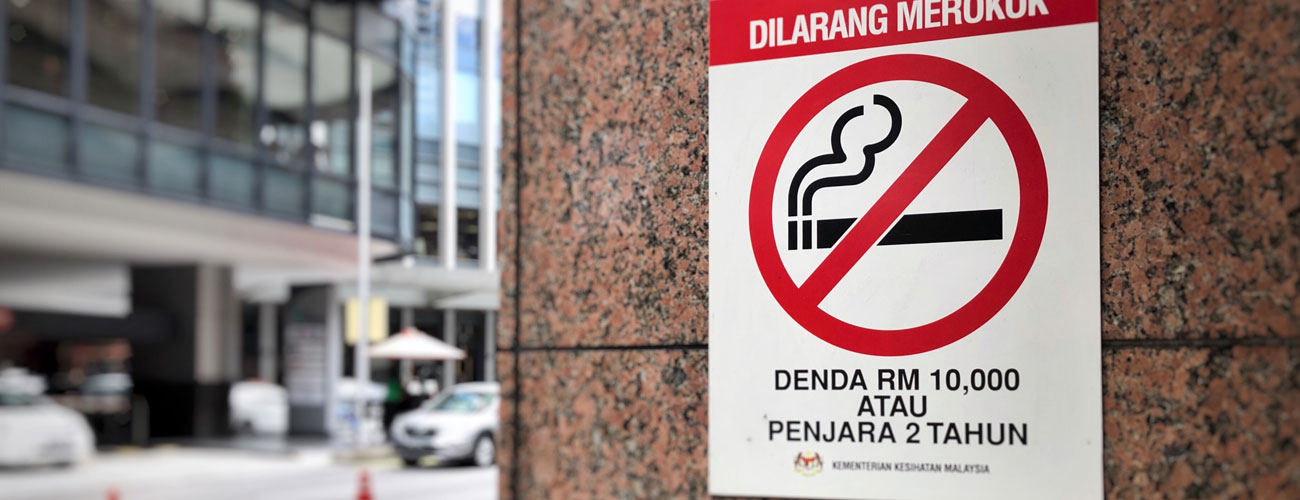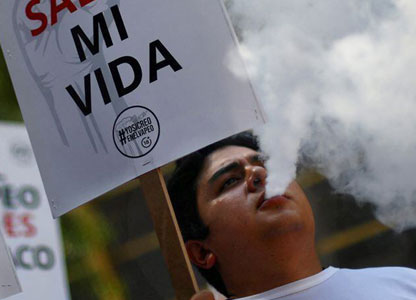Better access to vapes and other nicotine alternatives could save up to 880,000 lives in Malaysia and Uzbekistan, a major new report has revealed.
Contrary to global trends, smoking rates in the two countries – where lawmakers have heavily regulated vapes alongside far more dangerous cigarettes – are set to rise over the next few years.
The World Health Organisation (WHO) predicts that smoking in Malaysia will increase from 29.7 per cent in 2020 to 30 per cent in 2025, with 18,000 lives being lost to tobacco-related illness annually by 2060.
In Uzbekistan, the WHO estimates that the annual number of deaths linked to smoking will average 20,000 by 2060.
The new study – ‘Lives Saved Report: Tobacco harm reduction and better treatment could save nearly 880,000 lives up to 2060 in Malaysia and Uzbekistan’ – says the predicted smoking death toll could be massively reduced by incorporating tobacco harm reduction (THR) into public health policymaking.
This would include making safer nicotine alternatives such as vapes, nicotine pouches and snus more easily available to people looking to give up smoking.
Decreasing the number of deaths
The research predicts that 416,000 lives could be saved in Malaysia, and 464,000 in Uzbekistan.
Dr. Derek Yach, a co-author of the report, said: “As smoking rates stagnate, it’s crucial for Malaysian policymakers to recognise that traditional tobacco control measures are falling short.
“Our report demonstrates that sensible harm reduction measures can be a highly effective strategy for promoting smoking cessation and decreasing the incidence of smoking related diseases.”
Dr Delon Human, another co-author of the report, said: “It is clear that a comprehensive approach to tobacco harm reduction is needed in order to stem the growing smoking rates in Malaysia.
“This includes making less harmful alternative products, such as e-cigarettes and nicotine pouches, more accessible, acceptable and affordable to smokers wishing to switch.”
What other countries have achieved
Countries such as Sweden and Japan provide compelling evidence of what THR measures such as making vapes more accessible can achieve.
Sweden is set to record a five per cent smoking rate later this year, at which point it will be officially declared a “smoke-free” country. A crucial element to both countries’ success is the availability of less harmful alternative products.
In June, Sweden reduced tax on snus by 20 per cent. The move followed a landmark report – ‘No Smoke, Less Harm’ – that proves nicotine use does not lead to tobacco-related disease, making it a powerful tool in smoking cessation.
Dr Human added: “Our message to the Malaysian government is clear. Rather than abandoning tobacco control efforts, they should be bolstered with proven harm reduction strategies.
“By allowing smokers to switch to alternative products, policymakers now have a golden opportunity to change the trajectory and save the lives of over 416,000 Malaysians.”
And in a message to the Uzbekistan government, Dr Delon Human, leader of campaign group Smoke Free Sweden, said:
“The onus is now on the Uzbek government to enhance its current tobacco control measures with proven harm reduction strategies. By offering smokers safer alternatives, policymakers have a timely opportunity to provide a crucial lifeline to 464,000 Uzbek smokers.”



